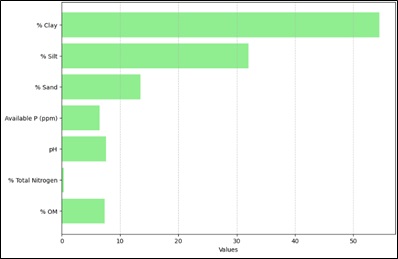Optimizing Irrigation and Nitrogen Fertilization for Enhanced Cabbage Yield and Water Use Efficiency in Lahore, Pakistan
Keywords:
Cabbage (Brassica Oleracea Var Capitata), Irrigation Scheduling, Nitrogen Fertilizer, Water use Efficiency, Crop Yield, Agricultural Productivity.Abstract
Water scarcity and irregular rainfall pose significant challenges to agricultural productivity, especially in water-scarce regions such as Ethiopia. This study investigates the effects of various irrigation schedules and nitrogen fertilizer rates on the growth and yield of cabbage (Brassica oleracea var. capitata L.) under the climatic conditions of Lahore, Pakistan. Using a factorial design within a Randomized Complete Block Design (RCBD), the research explores how different irrigation intervals (3, 6, and 9 days) and nitrogen levels impact cabbage yield, water distribution uniformity (DU), water application efficiency (AE), and water productivity (WP). The experiment involved analyzing parameters such as head height, diameter, plant spread, and fresh weight of cabbage heads. Results indicate that optimal irrigation and nitrogen management significantly enhance cabbage growth and yield, with marketable yields ranging from 25 to 40 t/ha. Water use efficiency (WUE) also varied based on treatment combinations, with tailored irrigation and nitrogen strategies improving WUE. This study provides valuable insights into effective water and nutrient management practices for optimizing cabbage production and addressing water scarcity challenges.


















